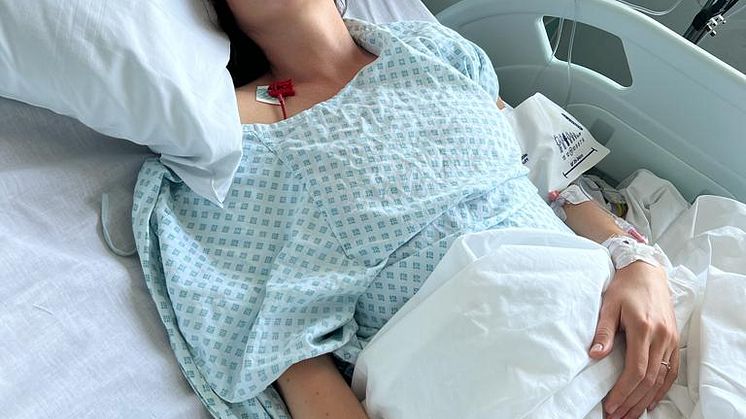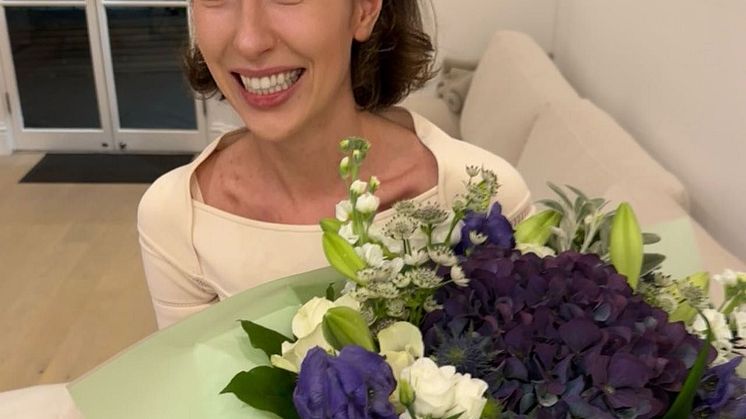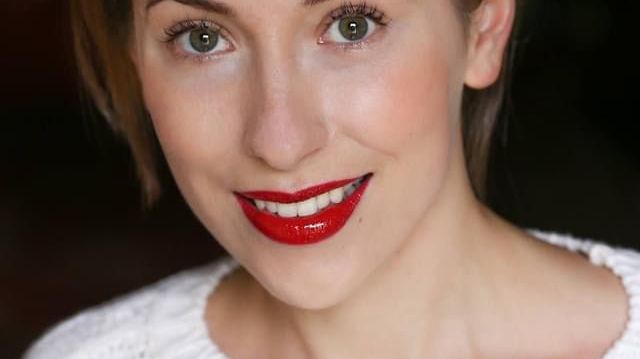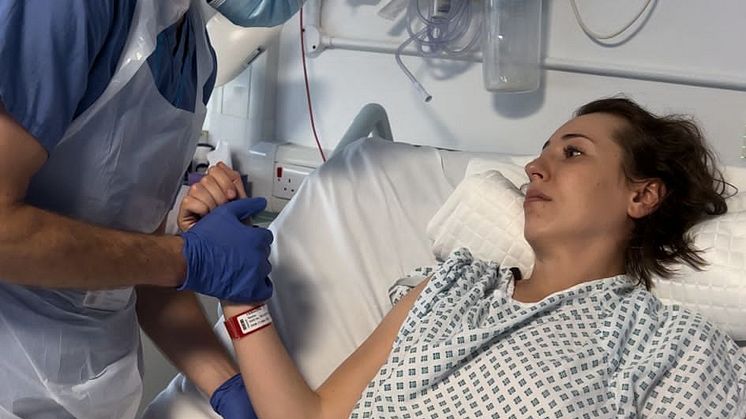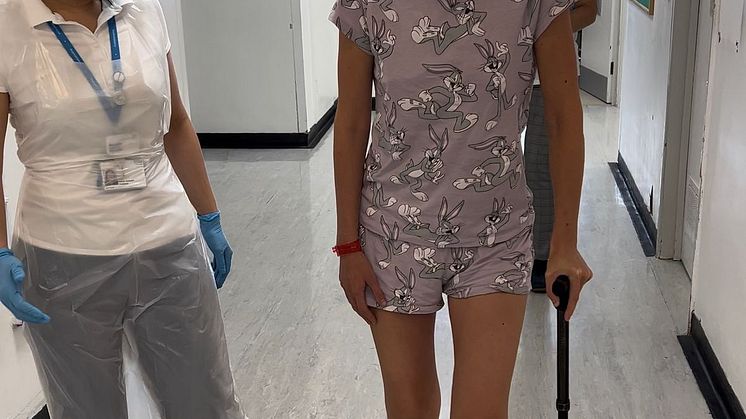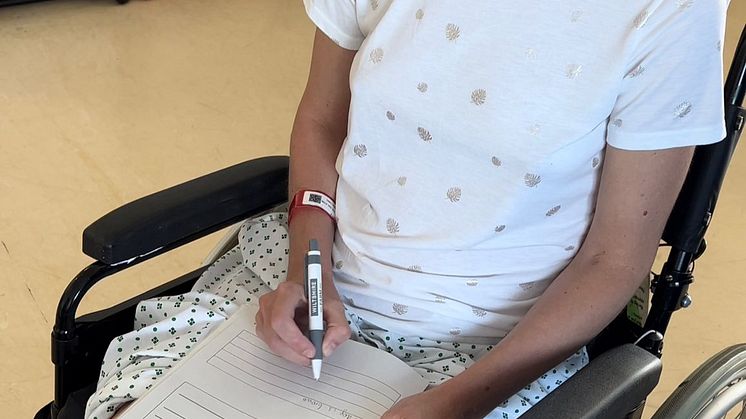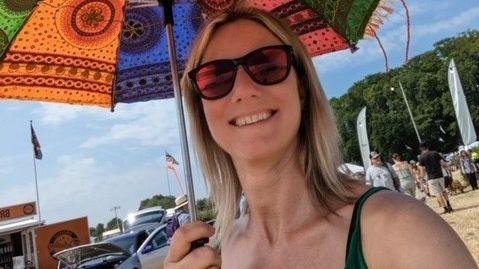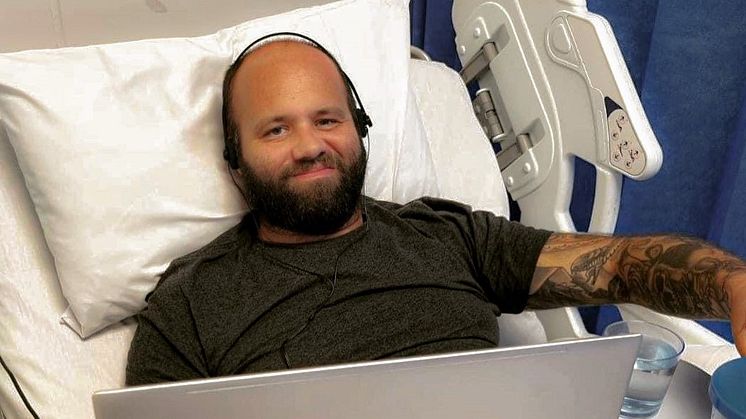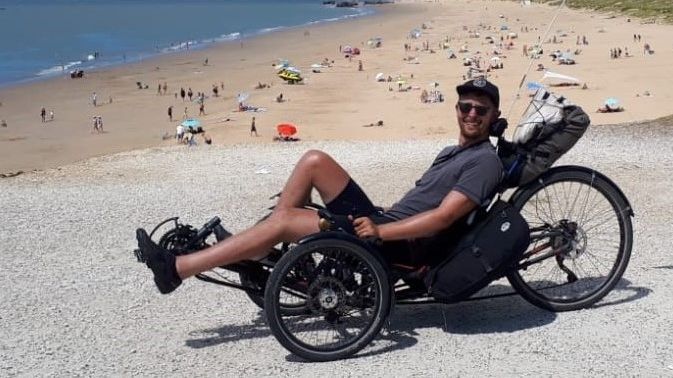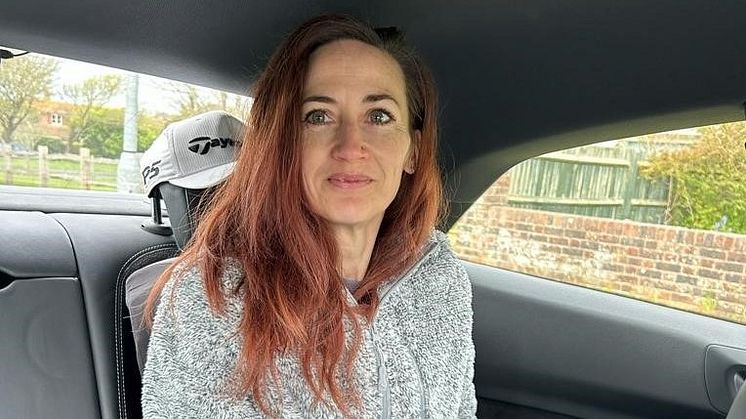
Press release -
Over half of UK adults think strokes don’t affect young people – yet stroke is drastically impacting young adults’ lives
Stroke Association shares new research to mark World Stroke Day
- Over half (60%) of the UK population wrongly believe that strokes don't happen to young people
- In fact, a quarter of young stroke survivors aged 18-60 (25%) feel their stroke has robbed them of their future
- Over half of young stroke survivors (56%) told the Stroke Association they have missed out on an important life goal because of their stroke
Over half (60%) of the UK population wrongly believe that strokes don't happen to young adults, according to new research revealed today by the Stroke Association1.
Despite 54% of UK adults knowing someone who has had a stroke, there is still a common public misconception that the condition only affects older people, when in fact one in four strokes happen in people of working age2. The charity has released the data ahead of World Stroke Day (Sunday 29 October), to warn that not only can stroke affect anyone at any age, but that young stroke survivors are missing out on significant milestones in their lives as a result.
The charity also carried out a survey of over 2,800 stroke survivors3, which shockingly, found that a quarter of young stroke survivors aged 18-60 (25%) feel their stroke has robbed them of their future.
Over a third of survivors aged between 18-60 (37%) said that before their stroke, they didn’t think strokes happened to people of their age. While over half of these young stroke survivors (56%) say their stroke has prevented them achieving an important life goal, such as progressing their careers or starting new relationships.
For survivors aged 18-60, the Stroke Association’s survey revealed:
- Over half of stroke survivors (51%) said their stroke had negatively impacted their careers, and stopped them getting a job, being promoted or changing career.
- A quarter of stroke survivors (26%) said their stroke had stopped them achieving their dream of going travelling.
- Around 16% of stroke survivors said their stroke had stopped them from making new friends.
- More than one in ten (11%) said their stroke prevented them from gaining new qualifications.
- Almost one in ten (9%) said their stroke has stopped them finding a partner.
In addition, almost two thirds of those surveyed (62%) said they now feel like a different person since their stroke. The effects of stroke are often devastating, with lives changed in an instant and survivors often left with serious long-term health issues. The research found that a staggering three quarters (78%) of stroke survivors aged 60 and under are struggling with fatigue since their stroke, while almost two thirds (61%) are living with depression or anxiety. More than half of respondents aged 60 and under (58%) now experience one-sided weakness, while almost two thirds (63%) are living with memory problems following their stroke.
Worryingly, a quarter of stroke survivors aged 60 and under (25%) also told the Stroke Association they had initially been diagnosed with another illness or condition, before being diagnosed with a stroke. The charity is warning that younger adults are potentially being misdiagnosed because even health professionals may not suspect a stroke when a younger adult has stroke symptoms.
Marina Ukhalova, 32 of Kensington, had a haemorrhagic stroke last July. The stroke left Marina with paralysis down the right side of her body, and with a communication disorder called aphasia, which left her unable to talk.
Marina, a beauty business owner, explains feeling like her life was over after having her stroke. Marina had to give up doing her dream job and is still living with the daily effects of her stroke.
Marina said: “I specialise in eyelash extensions, and opening and owning my beauty business was a huge achievement for me. I absolutely loved work – it was like therapy to me. After my stroke, I was robbed of so much, it felt like my world had come shattering down. Not only do I struggle physically, but also mentally. I really did try to get back to doing my day job, but sadly it wouldn’t work. Thankfully I’m fortunate enough to be in the position to employ staff because I couldn’t imagine having to shut the business down. I’m sad I won’t get to do what I’ve worked so hard on all these years, but my passion for the business will never die.”
Marina was living alone at the time of her stroke and woke up one morning feeling really unwell. Marina explains: “I felt dizzy and sick, and had an excruciating pain in my head. It felt like a sharp knife digging into my brain; my whole head was throbbing. I knew something was seriously wrong, but as I got up to get my phone I collapsed to the floor and passed out.”
This is where Marina stayed for the next 12 hours. Unable to shout out for help or move, Marina was helpless. Extraordinarily, Marina’s sister who was in a different country at the time, began to get concerned about Marina, after noticing she hadn’t been active on Whatsapp for over 12 hours. Speaking daily, Marina’s sister knew that it wasn’t like Marina to have not been online or speak – so alarm bells started to ring.
Marina said: “Everything feels like a bit of a blur, but I remember my phone ringing. As my phone rang, I distinctively remember trying to pull my body across to floor to reach it, but I had no strength. Every time I moved, I would be shocked by the pain, and pass out again. In the moments of consciousness all I could pray for was someone to know I needed help.”
Marina’s sister knew something wasn’t right, and incredibly, she rang a friend nearby to Marina’s home to check on her.
Marina said: “I remember hearing voices outside my front door and felt a huge sense of relief was knowing I was close to getting help. But I couldn’t speak, I couldn’t move – and I was just lying there unable to tell those people I was inside and needed help. I began to moan loudly in the hope they would hear me. Thankfully the police were called, and my door was knocked down. As they rushed in and asked me questions, I tried to talk but nothing was coming out.”
With the support of her sister and partner, Marina worked on her recovery every day. Regaining her speech slowly, and movement in the right side of her body.
Marina said: “There’s still some way to go with my recovery. I’ve had good days, but also bad days. Before my stroke I was very fit, active and sociable – I felt robbed of everything I’d worked hard for, and who I was. I’m slowly understanding life after
stroke though, and working hard on not only my physically issues, but mentally too.
“I’ve learnt to be patient. And now I want to turn this horrible experience into something positive – to help others.”
There are over 100,000 strokes each year and 1.3 million stroke survivors living in the UK today, with these numbers only set to grow. With an increasing number of people surviving stroke and an ageing population, by 2035, the number of stroke survivors living in the UK is expected to rise to over 2 million. The estimated overall cost of stroke in the UK is set to rise from £26 billion in 2015 to £75 billion in 2035, an increase of 194% over 20 years4, presenting increasing societal challenges in future.
The Stroke Association is aiming to raise awareness of the support it provides for stroke survivors of any age across the UK, to help rebuild lives and support stroke survivors to achieve their life goals.
Alexis Kolodziej, Executive Director at the Stroke Association, said: “Our research highlights that people still think stroke is a condition that only affects older people. It’s crucial that we challenge this misconception and make people aware that stroke affects young adults too.
“Stroke simply shouldn’t be a key milestone in a young adult’s life. When planning for the future, no one prepares to have a stroke. Yet one in four strokes happen in people of working age and around 400 children have a stroke in the UK every year.
“After a stroke, life changes in a flash. Two thirds of people who survive a stroke find themselves living with a disability. As a result, young stroke survivors are having important milestones and their planned futures stolen from them, while they have to learn to adapt to their new life affected by stroke.
“At the Stroke Association, we know the value that life after stroke support plays in rebuilding lives. A stroke doesn't have to stop you from doing the things you want to do. The Stroke Association provides support that covers every aspect of a survivor’s recovery, so you are not just living to survive, but able to live life again.”
If you know a stroke survivor of any age, visit stroke.org.uk/worldstrokedayto find out more about support available and ensure they don’t miss out on important life milestones. To find out if any of our services are available in your area, you can use our search tool or call the Stroke Helpline on 0303 3033 100.
Topics
Categories
About the research
- The UK wide population statistics are based on a nationally representative online survey conducted by 4Media among 1,001 respondents from the UK. The research fieldwork took place on 26 September–28 September 2023.
- The Stroke Association additionally surveyed 2,858 stroke survivors from across the UK, with 971 respondents aged 60 and under.
References
- Research conducted by 4Media on behalf of the Stroke Association, September 2023.
- Stroke Association: What is stroke? https://www.stroke.org.uk/what-is-stroke/are-you-at-risk-of-stroke
- Research conducted by the Stroke Association among 2,858 stroke survivors, of which 971 were aged 60 and under, September 2023.
- Current, future & avoidable costs of stroke in the UK: https://www.stroke.org.uk/sites/default/files/current_future_avoidable_costs_of_strokesummary-report.pdf Page 13
About the Stroke Association
- Stroke strikes every five minutes in the UK and it changes lives in an instant.
- The Stroke Association is a charity working across the UK to support people to rebuild their lives after stroke. We believe that everyone deserves to live the best life they can after stroke. From local support services and groups, to online information and support, anyone affected by stroke can visit stroke.org.uk or call our dedicated Stroke Helpline on 0303 3033 100 to find out about support available locally.
- Our specialist support, research and campaigning are only possible with the courage and determination of the stroke community and the generosity of our supporters. With more donations and support, we can help rebuild even more lives.
- · You can follow us on X, Facebook , Instagram and LinkedIn



